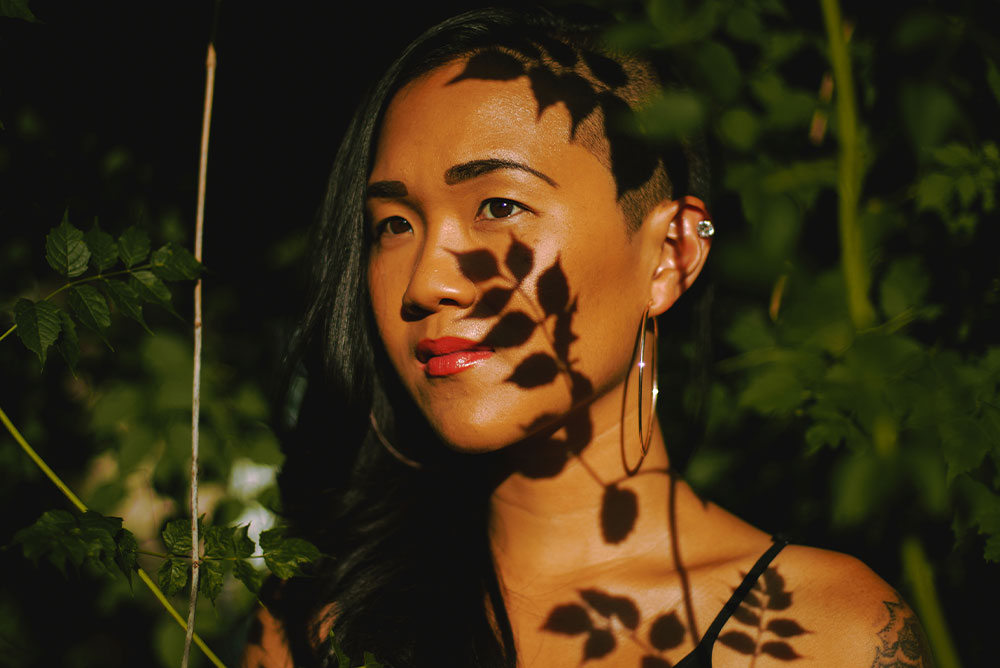
Courtesy of Cynthia Dewi Oka.
Cynthia Dewi Oka is the May poetry curator for Zócalo. The Indonesian-born poet, community organizer, and teacher is the author of four poetry collections, including the forthcoming A Tinderbox in Three Acts. Currently, she is a Poet in Residence at the Amy Clampitt House in Lenox, Massachusetts. We caught up with Oka in Zócalo’s green room to chat about Sailor Moon, her most memorable poetry performance, and “going on airplane mode.”
Which poets have influenced you the most?
Someone that’s been a constant inspiration is Chilean poet Raúl Zurita who was writing under Pinochet’s regime and revolutionized [how to] create openings to speak even when the political, cultural environment disallowed any kind of free expression.
June Jordan was influential for me when I was a younger poet, and I find myself returning to her now. June was both deeply lyric and polemical and was able to comment on the world in specific and incisive ways with poetry being her praxis of figuring out what it means to be a human being in the world. Audre Lorde and Adrienne Rich were like that as well; they were poets that were not afraid to make mistakes and change their minds. The whole point of arts and philosophy is to grow, evolve, and be able to be in conversation with each other. So, I really appreciate artists who model change.
Aracelis Girmay is another influential poet for me. Her heart as a poet is so tender, and that’s the kind of heart that I aspire to have as a poet. To be touched by the world and to encounter the world as something sacred and holy in spite of the many ways that we make a mess of it as human beings.
Where would we find you at 10 AM on a typical Saturday morning?
Probably Pilates. It’s the best thing for my chronic back pain. It’s not enjoyable but I do it for my health.
What profession would you like to do in your next life?
A filmmaker. It’s an art form that brings everything: writing, organizing, corralling people in… The organizer in me is very drawn to bringing a large group of people together around a single vision. Hopefully I wouldn’t be an asshole type, but the one that invites the participation of all with kindness and generosity.
How has the pandemic affected how you think about or write poetry?
I feel bad for saying this but I kind of loved the slow down. Because I was traveling a lot [before COVID], I felt like I was always having to squeeze poetry on the plane or in the bathroom. It’s terrible what we all went through. The fact that I felt like I got some of my reading life back was the only kind of silver lining of the last couple of years.
Who was your childhood hero?
Sailor Moon. When she’s Sailor Moon and fighting for justice and against evil, it’s easy to have that version as the hero. But her human version, Serena, was also my hero. She was annoying and cried about everything, but I grew up with this family that was very tough; children weren’t allowed to express feelings, only adults. So, I felt both repulsed by those qualities in Serena, but also attracted to her—What happens if we allow people to be sad, especially girls and women?
What dessert do you find impossible to resist?
Popsicles. I used to make them myself every night with whatever juices I had leftover. It made me so happy. It feels like a reward after finishing the day.
What’s one memorable performance you’ve done over the years?
In 2012, my friend Hari Alluri and I were working on our very first books together. We would co-edit each other and constantly be in conversation about them. We were also organizers and very deep in the community. We created this kind of joint book launch where his book melded with my book. Then we asked our friends [who had other artistic talents] how they would engage with the poems, and what they would do with them. One turned my poem into a jazz performance. We did it in a café that was a community hub, and we had a packed house. There was no stage. People were performing at different points in the room, moving around the space. Folks participated and they were stomping, keeping rhythm, tapping on the walls—it was this entire 3-D lived experience—a union, a melding, of the individual and the collective. We lose so many rituals of what it means to honor important moments in each other’s lives; the performance became a communal ritual for a sense of a new beginning.
What’s your favorite holiday?
Nyepi, a day in Indonesia that begins in Bali, specifically, which is where I grew up. It’s the beginning of new year for us, where we observe an entire day of silence and everything shuts down. All the electricity is turned off so there’s darkness and silence. There’s something about everyone doing that—not just a moment, but a whole day—which feels, to this day, very cleansing.
Where do you go to be alone?
I’ve been a mom since 17, so that’s a tough question. For years, it was less a place but a time. For my first two books and the first chapbook, I woke up at 4 AM to write. I’ve learned to cultivate living in my mind because of the demands of work, motherhood, and my various political commitments over the years, in addition to poetry. It’s a room where work is always happening. When that room gets too big—my son has a name for it; we’ll be making dinner and if I’m really working something in there, he’ll clock it and say “mom has gone on airplane mode.” He actually just left to college, so the fact that I now have time to myself is new to me. I’m still learning.



